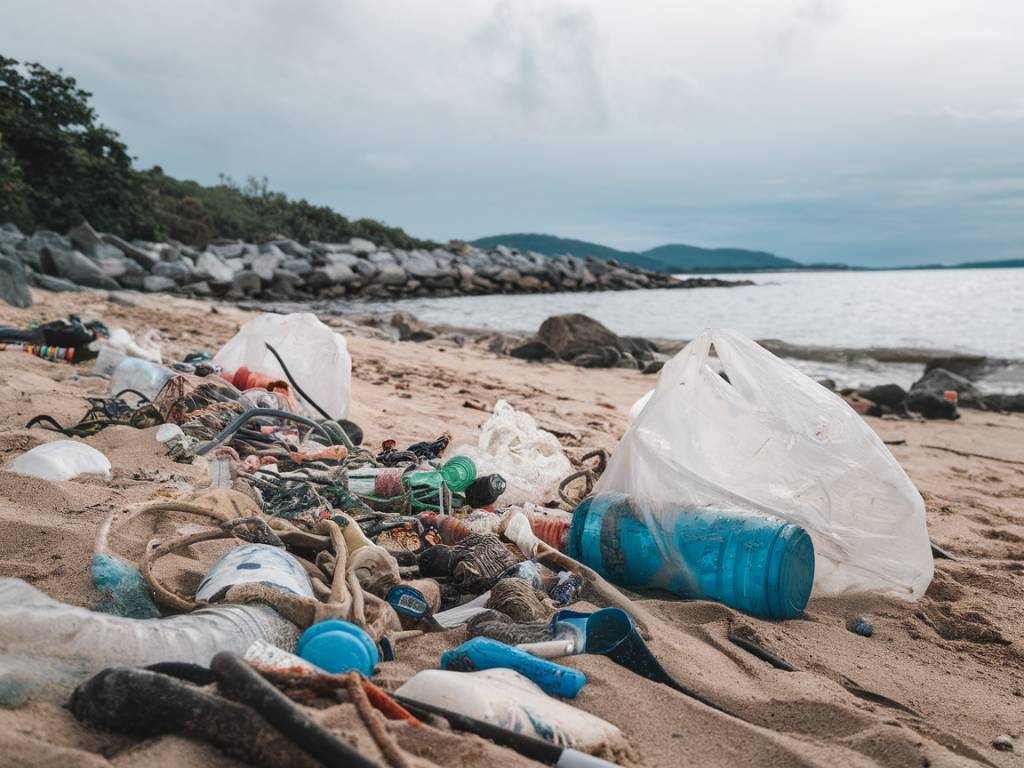The impact of plastic-free initiatives has been gaining significant attention in recent years. As the world faces environmental challenges, plastic pollution stands out as one of the most pressing global issues. The alarming rise in single-use plastic products has led to detrimental consequences for both marine and terrestrial ecosystems. This article delves into the multifaceted impact of plastic-free initiatives, highlighting their importance, challenges, and future prospects.
Understanding Plastic Pollution
Plastic pollution refers to the accumulation of plastic objects and particles in the Earth’s environment, which adversely affects wildlife, wildlife habitat, and humans. Over the years, plastic has become ubiquitous due to its durability and versatility. However, these very characteristics have turned it into a persistent pollutant.
Globally, it is estimated that over 8 million tons of plastic waste enter the oceans every year. This plastic waste often breaks down into microplastics, which can persist in the environment for centuries. The detrimental impact on marine life is profound, with numerous marine species ingesting or getting entangled in plastic debris.
The Rise of Plastic-Free Movements
In response to the growing awareness of plastic pollution, numerous plastic-free initiatives have emerged worldwide. These initiatives aim to reduce and eventually eliminate the use of single-use plastics. Various organizations, governments, and communities have recognized the need for sustainable alternatives and have started championing the cause of a plastic-free world.
Several strategies are employed within plastic-free initiatives, including:
- Promoting reusable products, such as metal straws, cloth bags, and stainless-steel bottles.
- Encouraging the reduction of plastic packaging in retail industries.
- Implementing bans or taxes on single-use plastic items, like plastic bags and cutlery.
- Investing in research for biodegradable and compostable alternatives.
Economic Implications of Going Plastic-Free
The transition towards a plastic-free environment has significant economic implications. On one hand, industries reliant on plastic manufacturing may experience challenges as they reconfigure their production processes. On the other hand, the demand for eco-friendly alternatives has catalyzed the growth of a new market segment.
Small and medium-sized enterprises (SMEs) that offer sustainable products have seen substantial market growth. Moreover, consumers are increasingly willing to pay a premium for products that are environmentally conscious. This shift in consumer preference has spurred innovation and competition among businesses to develop green products.
Environmental Benefits
The environmental benefits of plastic-free initiatives are manifold. By reducing plastic consumption, natural habitats are spared from the dangers of plastic pollution. Cleaner oceans and rivers ensure a safer habitat for marine life, birds, and other wildlife. Furthermore, cutting down on plastic usage also reduces carbon emissions, as the production and disposal of plastic contribute significantly to greenhouse gas emissions.
Initiatives like beach cleanups and community-led waste management programs play a crucial role in not only reducing existing plastic waste but also promoting environmental stewardship among individuals and communities.
Challenges and Barriers
Despite the numerous benefits, several challenges hamper the widespread adoption of plastic-free initiatives. Key barriers include:
- Cost: Eco-friendly alternatives often come at a higher price, making them less accessible to low-income consumers.
- Infrastructural Limitations: Many regions lack the necessary infrastructure for recycling or composting biodegradable alternatives.
- Lack of Awareness: In many parts of the world, the general public remains unaware of the detrimental impacts of plastic pollution and the benefits of reducing plastic use.
- Resistance to Change: Habitual reliance on plastic products can be difficult to break, requiring significant behavioral shifts.
Government and Organizational Roles
Governments and organizations play pivotal roles in driving the transition towards a plastic-free world. Policy measures such as bans on specific plastic items and incentives for businesses to adopt eco-friendly alternatives are essential. Governments can also support awareness campaigns to educate the public on the importance of reducing plastic consumption.
Non-governmental organizations (NGOs) and community groups often spearhead grassroots initiatives, organizing cleanup drives, educational workshops, and advocacy campaigns. Such efforts complement governmental policies and drive community engagement in plastic-free movements.
Success Stories
Numerous success stories demonstrate the positive impact of plastic-free initiatives. For instance, the city of San Francisco has achieved a remarkable reduction in plastic waste through stringent policies and community mobilization. Banning plastic bags, prohibiting the sale of plastic water bottles, and promoting compostable alternatives are some measures that have contributed to the city’s success.
Similarly, organizations like Surfers Against Sewage in the UK and Plastic Pollution Coalition globally have made significant strides in raising awareness and advocating for policy changes, resulting in reduced plastic waste and cleaner natural environments.
Future Prospects
The future of plastic-free initiatives is promising but contingent on sustained efforts and innovative solutions. Emerging technologies, such as bioplastics and advanced recycling processes, hold the potential to revolutionize how we manage plastic waste. However, research and development in these areas require support from both public and private sectors.
Moreover, fostering a culture of environmental responsibility among future generations is crucial. Educational institutions can integrate environmental studies into their curricula, emphasizing the importance of sustainable living and the impact of plastic pollution.
In conclusion, plastic-free initiatives represent a pivotal step towards a more sustainable and environmentally-friendly world. While challenges exist, the collective efforts of governments, organizations, and individuals can drive significant change. As awareness grows and innovations emerge, the vision of a plastic-free future becomes increasingly attainable. Embracing these initiatives is not just a choice but a necessity for the well-being of our planet and future generations.




